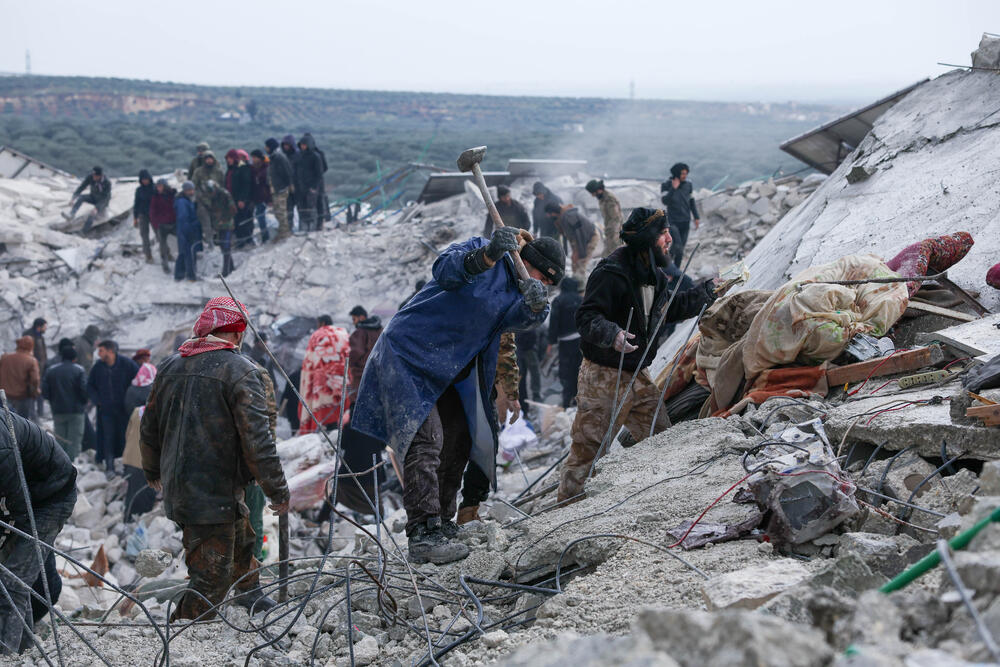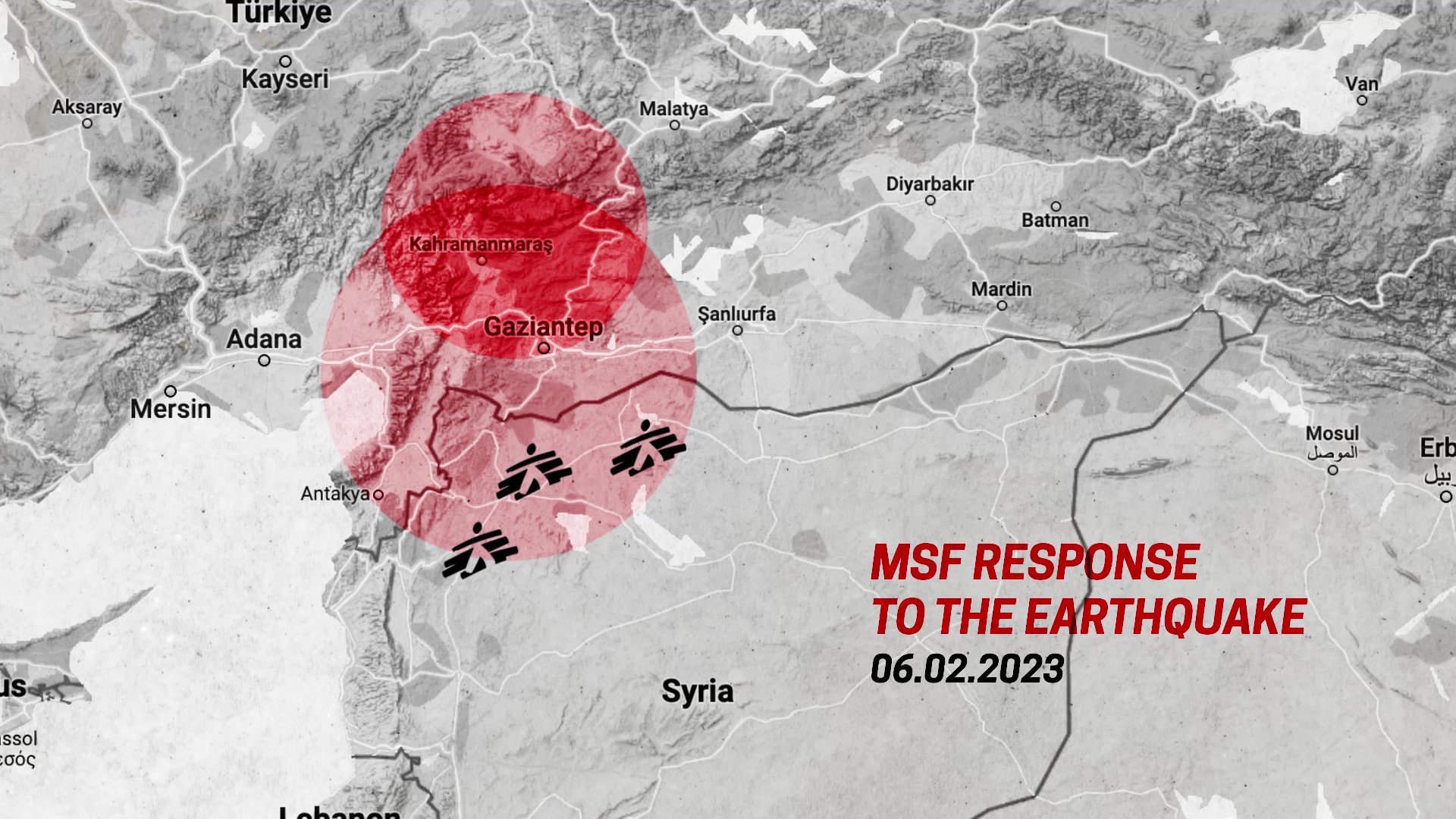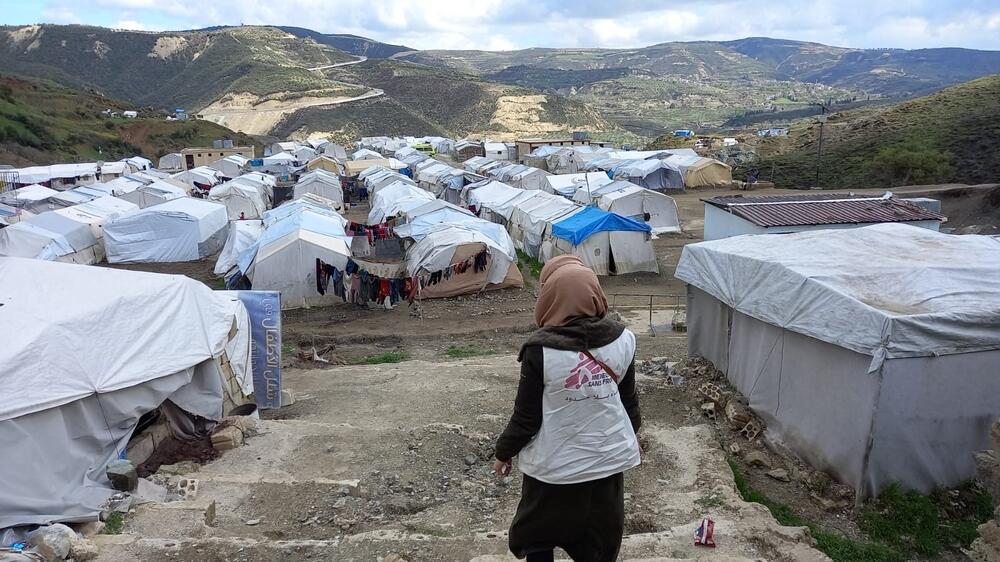Syria-Turkey earthquake: What is MSF doing?
10 February 2023
This page is no longer being updated. For the latest information on our response to the Syria-Turkey earthquake, visit our crisis page.
On Monday 6 February, two major earthquakes hit northwest Syria and southeast Turkey (Türkiye) causing severe devastation.
Médecins Sans Frontières / Doctors Without Borders (MSF) teams have been responding in northern Syria since the first hours of the disaster.
So far, more than 7,600 people have died and more than 20,000 have been injured across the two countries.
What is MSF doing?
- In Aleppo and Idlib, northern Syria, MSF-supported hospitals have seen more than 3,465 injured patients
- Our teams have donated emergency trauma and surgery kits to 23 other hospitals and clinics in the region
- We have deployed our ambulances and dispatched extra staff to hard-hit healthcare facilities
- More than 2,500 families have received blankets, hygiene kits and food items
- Hospitals are damaged or destroyed - two MSF maternity centres have been evacuated due to the risk of collapse
- We remain in close contact with authorities in northwest Syria and southern Türkiye, ready to provide further support to people affected by the earthquake
- Two MSF staff members have died, while others have lost family members
The situation is extremely fast-moving. More information on MSF's response to the earthquake will be shared as it becomes available.
Following the powerful earthquakes, MSF teams already supporting people across northwest Syria mobilised, along with local partner organisations, to respond to the overwhelming needs in the area.
So far, the UN has confirmed more than 7,600 people have died and more than 20,000 have been injured, according to estimates in both countries.
Sadly, two of our staff members have died, while others have lost family members.
Overwhelmed hospitals
“We are very shocked and saddened by the impact of this disaster on the thousands of people touched by it, including our colleagues and their families”, says Sebastien Gay, Head of MSF in Syria.
“Health facilities are impacted and overwhelmed, and the medical staff in northern Syria are working around the clock to respond to the huge numbers of wounded arriving at the facilities.
“From the first hours, our teams treated around 200 injured people, and we received 160 casualties in the facilities and the clinics that we run or support in northern Idlib. Our ambulances have also deployed to assist people.”
MSF provided immediate support to 23 healthcare facilities across Idlib and Aleppo governorates by donating emergency medical kits and providing medical staff to reinforce their teams.
Our teams have also donated blankets and essential life-saving relief kits to displaced people in northwest Syria.
The level of damage in the region has destroyed hundreds of houses, leaving thousands homeless. It had been snowing for three days leading up to the earthquake, however, many people remain outside fearing further aftershocks which have continued.
An international response
“The needs are very high in northwest Syria as this quake adds a dramatic layer for the vulnerable populations that are still struggling after many years of war”, adds Gay.
“The massive consequences of this disaster will require an international aid effort that is up to the scale.”
MSF remains in close contact with the local authorities in northwest Syria and with the authorities in Türkiye to extend our support where it’s needed.
We are currently assessing the situation and needs in Idlib, northern Aleppo and south Türkiye to scale up our response accordingly as the number of deaths and injuries is increasing by the hour.
MSF and natural disasters
Within minutes, natural disasters such as earthquakes, tsunamis and hurricanes can overwhelm an entire population. Thousands of people can be injured or traumatised by the loss of family, friends and homes, while access to clean water, healthcare and transport can be cut off.
MSF has more than 50 years of experience delivering rapid and coordinated medical responses to protect survivors of natural disasters.
Get urgent updates by email
Never miss an update from the frontlines of natural disasters, conflict zones and epidemics with out monthly email newsletter.


